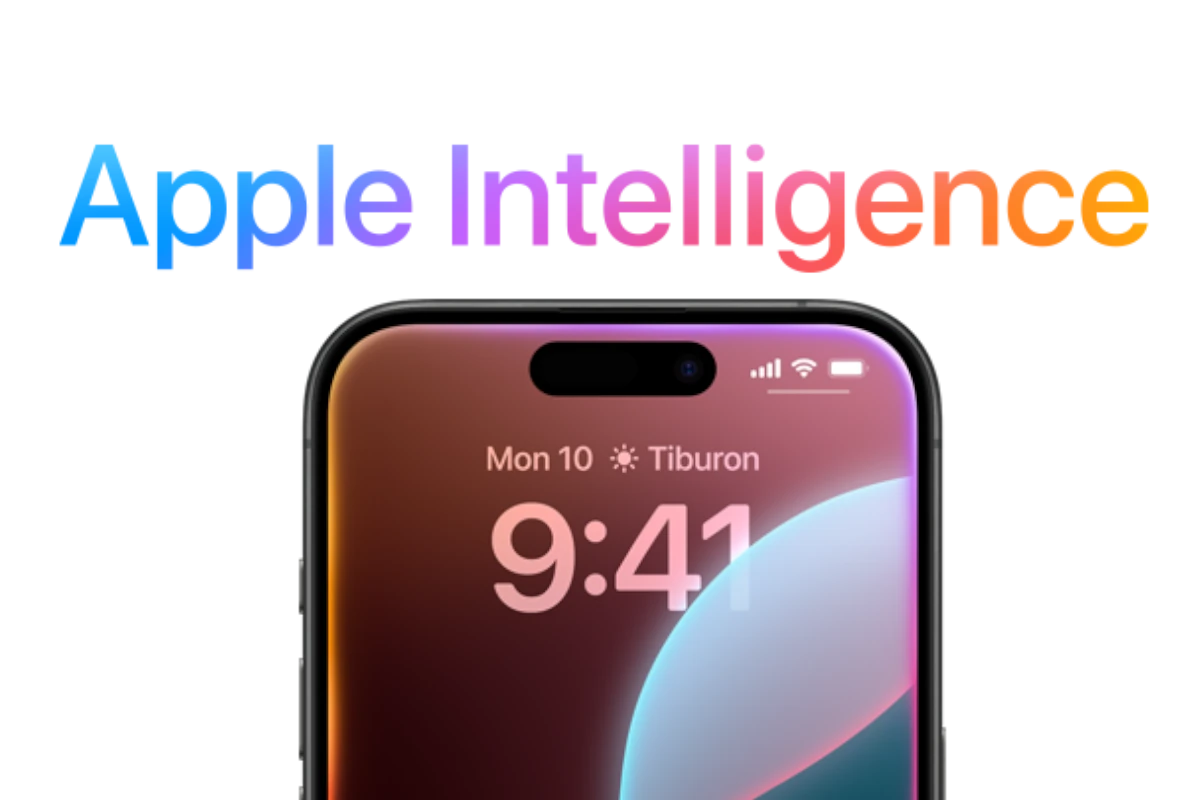A recent SellCell survey reveals significant dissatisfaction among iPhone users regarding Apple’s AI features, branded as Apple Intelligence. While nearly half of users acknowledge AI’s importance in purchasing decisions, many remain unconvinced and disengaged due to factors like lack of awareness and perceived redundancy. Users prioritize practical functionalities over advanced AI capabilities. The findings suggest Apple needs to improve its AI offerings and better communicate their value to its users, highlighting ongoing consumer attitudes towards AI in smartphones.
Apple Intelligence: A Slow Start for AI on iPhones
Survey Says: Users Are Underwhelmed
A recent survey by SellCell reveals that iPhone users aren’t exactly thrilled with Apple Intelligence, the tech giant’s suite of AI features. Many users haven’t even tried the features. About 58% of survey participants haven’t updated to iOS 18.1, which is needed to use Apple Intelligence. Of those who have used the features, 73% say they don’t add much, if any, value to their iPhone experience. This lack of enthusiasm is a bit surprising, as almost half of iPhone users said AI is somewhat important when they buy a new phone.
Most Popular (But Still Not Widely Used) Features
Even the most popular Apple Intelligence features aren’t being used by a majority of users. Writing Tools, which help with things like composing messages and emails, are the most used. However, only 72% of those surveyed use them. Notification Summaries, which group notifications together, are used by just 54% of respondents.
Apple vs. Samsung: The AI Face-Off
The survey also asked users to compare Apple Intelligence to Samsung’s AI features. Only 15% said Apple’s AI was better than Samsung’s, while 6% preferred Samsung’s. A third of the people surveyed said neither was better. It seems like users aren’t that impressed with the AI features on either type of phone.
Possible Reasons for the Lukewarm Response
There are a few possible reasons why iPhone users aren’t excited about Apple Intelligence. One reason could be that the features are still pretty new. Many people may not understand how to use them or how they can be helpful. Another reason could be that the features aren’t that different from what’s already available on iPhones. For example, iPhones have had good autocorrect features for a while now, so the new AI writing tools might not seem that groundbreaking.
What’s Next for Apple Intelligence?
It’s still early days for Apple Intelligence. It’s possible that as Apple adds more features and improves existing ones, users will become more interested. Apple will likely continue to develop its AI capabilities, so it’s worth keeping an eye on how these features evolve.
The Future of AI on Smartphones
While Apple Intelligence may not be a hit with users yet, it’s clear that AI is going to play a big role in the future of smartphones. AI has the potential to make our phones even more helpful and personalized. We can expect to see more AI-powered features in the future, such as:
- Improved voice assistants: Voice assistants like Siri and Google Assistant will become even better at understanding what we want and responding in helpful ways.
- Smart cameras: Phone cameras will use AI to take even better photos and videos. They might even be able to automatically edit photos for us.
- Personalized experiences: AI could be used to learn our preferences and customize our phone experience. This could include things like suggesting apps we might like or automatically adjusting settings based on our usage habits.
It will be interesting to see how Apple and other companies use AI to improve our smartphones in the years to come.
Expanding Your AI Horizons: Exploring AI Beyond Smartphones
While the SellCell survey focused on smartphone AI, it’s worth noting that artificial intelligence is being used in many other ways. Here are a few examples:
- Healthcare: AI is being used to develop new drugs and treatments, diagnose diseases more accurately, and provide personalized care to patients.
- Finance: AI is being used to detect fraud, make investment decisions, and provide better customer service.
- Transportation: AI is powering the development of self-driving cars, which could revolutionize the way we get around.
- Education: AI is being used to create personalized learning experiences for students and to help teachers with tasks like grading.
As you can see, AI is already having a major impact on many different industries. And as AI technology continues to develop, we can expect to see even more innovative applications in the future. Whether you’re excited about AI or a little wary of it, there’s no doubt that it’s a technology that’s here to stay. It’s worth learning more about AI and how it might affect your life, both personally and professionally.
Short Summary:
- 73% of iPhone users express dissatisfaction with Apple’s AI offerings, indicating minimal added value.
- While 47.6% of iPhone users consider AI vital for smartphone purchases, 16.8% would switch to Samsung for superior AI functions.
- The loyalty of iPhone users has notably declined, with only 78.9% confirming their commitment to the Apple ecosystem.
Apple and Samsung’s foray into smartphone AI is drawing significant scrutiny from users, with a recent SellCell survey uncovering alarming trends regarding customer satisfaction with AI functionalities. As both companies aim to leverage AI technology to enhance user experience, the results suggest a steep hill to climb before convincing consumers of AI’s real-world benefits.
The survey, which took place between late November and early December 2024, aggregated insights from over 2,000 smartphone users across the United States. It revealed that 73% of iPhone users believed the AI features available to them offer little to no value, while a staggering 87% of Samsung Galaxy users echoed this sentiment. These numbers reflect a prevalent discontent that cuts across both platforms, highlighting a critical challenge ahead for both tech giants in refining their AI offerings.
Apple’s Struggles with Apple Intelligence
Apple’s AI suite, designated as Apple Intelligence, was initially launched with iOS 18.1 in October 2024, featuring multiple capabilities such as Writing Tools, Notification Summaries, and Clean-Up in Photos to assist users in streamlining their digital tasks. However, despite a high interest in these features, user feedback indicates that many have fallen short of expectations.
According to the survey, although 72% of respondents utilized the Writing Tools—designed to assist with writing, editing, and summarization—only a minority considered these tools significantly valuable. Specifically, about 64.7% of respondents felt that these functionalities are “not very valuable,” indicating a disconnect between feature adoption and perceived usefulness. The same pattern persisted for Notification Summaries, where only 54% of users deemed it advantageous, and a mere 20.9% found Smart Reply in Mail and Messages truly helpful.
“While AI has the power to transform how we interact with our devices, the sophistication of the tools available today does not meet our day-to-day needs,” one respondent lamented.
Furthermore, privacy concerns linger among Apple users, although they are generally less pronounced than in the Samsung ecosystem. Many iPhone users also pointed to inaccuracies inherent in current AI features, which can result in frustrating user experiences.
Galaxy AI’s Greater Struggles
The response from Samsung Galaxy users tells a similar story, though the sentiment appears to be even harsher. Launched earlier with OneUI 6.1 in March 2024, the Galaxy AI capabilities have not woven themselves into the daily lives of users effectively. Tools like Circle to Search, which allows users to draw a circle around elements on their screen to find related information, and Photo Assist, which helps with photo editing suggestions, were popular during the survey, yet their effectiveness was met with skepticism.
Interestingly, while 82.1% of Galaxy users engaged with Circle to Search, more than half, at 51.9%, reported feeling these features provide little to no round-the-clock utility. Concerns about privacy and data handling also rose to the forefront, leading 35.5% of users to express distrust in the accuracy of AI data processing.
“It seems as though the AI features have been packaged as fancy gimmicks rather than serious tools meant to improve our experiences,” noted another participant.
AI’s Influence on Brand Loyalty
The most worrying revelation of the survey centers around brand loyalty. In the face of perceived inadequacies in AI capabilities, 16.8% of iPhone users indicated a willingness to switch to Samsung if it provided superior AI functionalities. This reflects a significant downtrend in user loyalty; only 78.9% of surveyed iPhone users now express firm allegiance to the brand, compared to 92% just three years prior in 2021.
Likewise, just 9.7% of Samsung users indicated they would consider switching to Apple for enhanced AI tools, showcasing that while both companies falter to appeal to their user bases, Apple is beginning to feel the pinch more profoundly.
The growing importance of AI as a differential factor comes at a time when traditional market differentiators, such as camera quality and battery life, reach a plateau, with consumers eager for more from their devices. Despite Apple users expressing a preference for AI’s potential in future purchases—47.6% deeming its importance in a new smartphone—many struggle to reconcile this sentiment with their experiences thus far.
“We are eager for a breakthrough in how these tools can enhance daily life rather than just offering glitzy features that fall flat,” stated an enthusiastic respondent.
Appetite for Paid AI Services
Another pivotal finding from the survey pertains to user readiness to pay for AI features. An unexpected 11.6% of iPhone users expressed interest in subscriptions for better AI services, a notable divergence from the 4% of Samsung users willing to consider a similar financial commitment. However, the overwhelming majority—86.5% of Apple users and an even graver 94.5% of Samsung users—remained staunchly opposed to paying for AI enhancements.
This unwillingness reflects broader skepticism concerning the value of premium AI services. Users are reticent to invest in tools that have yet to illustrate significant benefits to their everyday smartphone experience.
Recent Developments that Could Shift Perception
The upcoming launch of iOS 18.2, featuring intriguing innovations such as the Genmoji tool—a feature designed to create new emoji using AI—and the integration of ChatGPT with Siri, presents an opportunity for Apple to reevaluate and potentially restore their reputation in the AI domain. Whether these enhancements will win back the affection of disenchanted users remains to be seen.
“As an iPhone user, I remain cautiously optimistic about the new features. If implemented well, they could finally demonstrate the kind of transformative power we expect from Apple,” remarked a survey participant.
However, both Apple and Samsung must recognize an emerging trend: AI features that do not translate into practical and reliable tools will earn skepticism from users. With competitors stepping up their game in the AI space, mainly through more sophisticated and user-friendly solutions, both companies face immense pressure to step up their innovation and execution.
The Road Ahead for Apple and Samsung
Moving forward, both Apple and Samsung must pay careful attention to user feedback. Rebuilding trust in their AI offerings will be crucial for regaining market confidence and fostering loyalty among smartphone consumers. The willingness of users to switch brands due to perceived shortcomings highlights a significant shift in consumer satisfaction. Apple and Samsung are now competing not only against each other but also against numerous innovative entrants eager to challenge their market dominance.
As these companies work to create a more interconnected world through AI, it’s essential that their tools not only promise improvements but also deliver on those promises, aligning with user needs and expectations. The survey findings serve as a clear reminder: the time for complacency is over, and the demand for genuine innovation and practical utility has never been greater. The tech landscape is evolving rapidly, and those who fail to adapt may find themselves left behind in this fast-changing market.







